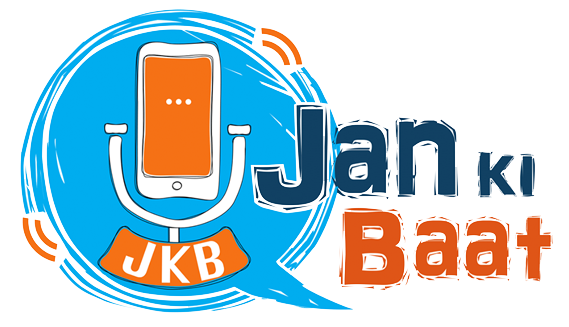In his own words, Narendra Modi described the Emergency as an “unexpected opportunity” (Aapda Mein Avsar) that allowed him to collaborate with leaders and organizations across the political spectrum, exposing him to diverse ideologies and viewpoints. The story of the Emergency, however, did not begin on June 25, 1975, when it was imposed. Student-led agitations against the corruption of the Congress Party were sweeping across the nation, and Gujarat was no exception.
In 1974, during the Navnirman Andolan in Gujarat, Modi witnessed firsthand the power of student activism in effecting change. As a Yuva Pracharak of the RSS, he was deputed to the Akhil Bharatiya Vidyarthi Parishad to voice the youth movement through his fiery speeches.
The Genesis of Modi’s Activism
During the Navnirman Andolan, Modi saw how the students’ voices could challenge the status quo. His involvement as a young activist deepened his resolve to fight against the corruption and authoritarianism of the Congress Party. His poem, written in his personal diary, reflects his commitment to the cause:
जब कर्तव्य ने पुकारा तो कदम कदम बढ़ गये
जब गूंज उठा नारा ‘भारत माँ की जय’
तब जीवन का मोह छोड़ प्राण पुष्प चढ़ गये
कदम कदम बढ़ गये
Ingenious Strategies to Evade Detection
With the imposition of the Emergency, dissemination of information became a significant challenge. Modi devised a unique solution: loading materials related to the Constitution, laws, and the Congress government’s excesses onto trains departing from Gujarat to other states. This ingenious method ensured messages reached remote areas with less risk of detection.
When the RSS was forced underground, the Gujarat Lok Sangharsh Samiti was established. At 25, Modi swiftly ascended to the position of its General Secretary within three years. His articles and correspondence were instrumental in sustaining the revolt against the Congress government, even during the most challenging periods when key movement leaders were unjustly arrested under the MISA Act.
International Outreach and Underground Networks
Modi actively reached out to individuals abroad, sending them underground publications and urging them to amplify international resistance. His colleagues abroad sent photocopies of ‘Satyavani’ and other newspapers published internationally that featured articles opposing the Emergency. He ensured copies were prepared and delivered to jails. Underground magazines from Gujarat and Gujarati publications critical of the Emergency, such as ‘Sadhana’ and ‘Bhumiputra’, were also distributed inside jails. Remarkably, an underground newspaper was regularly published from Yerwada jail in Maharashtra.
The Master of Disguise
The other Satyagrahis, Modi adopted various disguises to evade detection. His disguises were so effective that even long-time acquaintances failed to recognize him. He dressed as a Swamiji in saffron attire and even as a Sikh wearing a turban. On one occasion, he successfully deceived authorities at a jail to deliver an important document.
Recognition and Legacy
After the Emergency was lifted in 1977, Modi’s activism and leadership during that tumultuous period started to gain recognition. In the same year, he was invited to Mumbai to discuss the youth’s resistance efforts during the Emergency. For his contribution to the program, Modi received Rs 250.
In recognition of his fighting spirit and organizational work, he was appointed the ‘Sambhag Pracharak’ of South and Central Gujarat. He was also entrusted with the important task of preparing the official articles of the RSS during the Emergency.
Authorship and Memoir
In 1978, Modi authored his first book, ‘Sangharsh Ma Gujarat’, a memoir of his experiences as a leader in the underground movement against the Emergency in Gujarat. Remarkably, he completed writing the book in just 23 days, sustaining himself solely on lemon water while abstaining from solid food. The book was launched by Babubhai Jasbhai Patel, the Chief Minister of Gujarat, and published by Sadhana Weekly, which had fought against censorship and obtained judgments from the Gujarat High Court.
During the launch ceremony, Modi, then 27 years old, expressed gratitude to the courageous workers, intellectuals, and journalists who played crucial roles in producing and distributing underground bulletins and literature during the Emergency. ‘Sangharsh Ma Gujarat’ remains a significant memoir chronicling the experiences during the Emergency period and documenting the collective resistance to it.
Critical Acclaim and Public Reception
‘Sangharsh Ma Gujarat’ was well received and widely acknowledged for its objective coverage of the #DarkDaysOfEmergency. A review of the book was broadcast on Aakashvani, the national public radio broadcaster of India, from Vadodara and Mumbai.
“Several books have been published in many languages about the Emergency crisis since it ended. Almost everyone has claimed they have written only what they have seen or heard from standard sources. The author of this supplement does not claim to write shocking stories or reveal new truths, but it contains something new and something that is being discovered for the first time…”
Several prominent newspapers, including the Gujarati daily Phulchhab and national English papers like the Hindustan Times and the Indian Express, featured reviews and covered the book’s launch.
Modi also received several personal letters reviewing his book and praising his monumental and unique effort. Among those letters was one that stood out as particularly special. Just two days after attending the book’s launch, the sitting Chief Minister, Babubhai Jasbhai Patel, sent a letter to Modi praising the book for its “wealth of information” and objective approach to the subject matter. Patel also thanked Modi for painstakingly compiling a variety of information about the #DarkDaysOfEmergency.
Fifty years later, as the current Prime Minister of India, Modi continues to remind both current and future generations about the ‘black spot’ cast on India’s democracy by the Congress during the #DarkDaysOfEmergency, vowing never to allow it to happen again.
Conclusion
Narendra Modi’s fight against the Emergency is a testament to his resilience, ingenuity, and unwavering commitment to democracy and justice. His journey from a young activist to a prominent leader is a story of courage and dedication that continues to inspire many.

